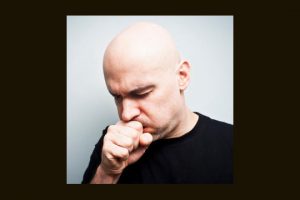A friend noted to me recently how Charles Manson, Timothy McVeigh, John Hinckley Jr., to name a few, were all murderers who were taken into custody by the police. These white men were not killed; they were not even wounded. My friend is African American, but that should not matter. His point is well taken. How is it that these white men were arrested, but lived to be found guilty of murder, while African American men and boys seem to be flagrantly killed for less than a misdemeanor?
I couldn’t bear to watch the footage of Eric Garner, who was choked to death by a Staten Island policeman. He was selling cigarettes unlawfully; and, for this, he dies? Meanwhile, white-collar crimes by mostly white males on Wall Street continue without so much as a slap on the wrist.
This state of affairs can create an atmosphere of hopelessness and despair, especially in minority communities. There may also be, in the country, a sense of hopelessness about other news, for example, the kidnappings and killings abroad, or the rapes occurring on college campuses here, and the rapes on public transportation reported in India.
A great message of hope in a time that seems hopeless is the Mexican proverb (paraphrased): They thought they buried us; they didn’t know we were seeds.
Sometimes the dark times of a seeming burial of the good is the hibernation and germination of new growth. Besides, what sometimes looks like the “good times” is simply denial of a darker truth.
We may long for the simpler days of “I Love Lucy” or “Lawrence Welk,” while forgetting the meanness of those times. Racial prejudice was a blatant given; rape, whether it be at the hands of a stranger, or an uncle, or a father, was not only not discussed, it was often the victim who was blamed.
We are still grappling with the destructive power of prejudice and the violence of power whether it be toward women or minorities. However, what was in the “good ol’ days” (good for whom?) accepted as the norm is now being questioned openly and publicly. This challenge of the dominant and dominating status quo is what is hopeful.
Indeed, what was buried and left for dead can be the sprouting of the seeds of change. This is after all, the season of hope.
* Kayta Curzie Gajdos holds a doctorate in counseling psychology and is in private practice in Chadds Ford, Pennsylvania. She welcomes comments at [email protected] or 610-388-2888. Past columns are posted to www.drgajdos.com.
About Kayta Gajdos
Dr. Kathleen Curzie Gajdos ("Kayta") is a licensed psychologist (Pennsylvania and Delaware) who has worked with individuals, couples, and families with a spectrum of problems. She has experience and training in the fields of alcohol and drug addictions, hypnosis, family therapy, Jungian theory, Gestalt therapy, EMDR, and bereavement. Dr. Gajdos developed a private practice in the Pittsburgh area, and was affiliated with the Family Therapy Institute of Western Psychiatric Institute and Clinic, having written numerous articles for the Family Therapy Newsletter there. She has published in the American Psychological Association Bulletin, the Family Psychologist, and in the Swedenborgian publications, Chrysalis and The Messenger. Dr. Gajdos has taught at the college level, most recently for West Chester University and Wilmington College, and has served as field faculty for Vermont College of Norwich University the Union Institute's Center for Distance Learning, Cincinnati, Ohio. She has also served as consulting psychologist to the Irene Stacy Community MH/MR Center in Western Pennsylvania where she supervised psychologists in training. Currently active in disaster relief, Dr. Gajdos serves with the American Red Cross and participated in Hurricane Katrina relief efforts as a member of teams from the Department of Health and Human Services' Substance Abuse and Mental Health Services Administration.Now living in Chadds Ford, in the Brandywine Valley of eastern Pennsylvania, Dr. Gajdos combines her private practice working with individuals, couples and families, with leading workshops on such topics as grief and healing, the impact of multigenerational grief and trauma shame, the shadow and self, Women Who Run with the Wolves, motherless daughters, and mediation and relaxation. Each year at Temenos Retreat Center in West Chester, PA she leads a griefs of birthing ritual for those who have suffered losses of procreation (abortions, miscarriages, infertility, etc.); she also holds yearly A Day of Re-Collection at Temenos.Dr. Gajdos holds Master's degrees in both philosophy and clinical psychology and received her Ph.D. in counseling at the University of Pittsburgh. Among her professional affiliations, she includes having been a founding member and board member of the C.G. Jung Educational Center of Pittsburgh, as well as being listed in Who's Who of American Women. Currently, she is a member of the American Psychological Association, The Pennsylvania Psychological Association, the Delaware Psychological Association, the American Family Therapy Academy, The Association for Death Education and Counseling, and the Delaware County Mental Health and Mental Retardation Board. Woven into her professional career are Dr. Gajdos' pursuits of dancing, singing, and writing poetry.
- Web |
- More Posts(250)


 (6 votes, average: 3.50 out of 5)
(6 votes, average: 3.50 out of 5)

Comments